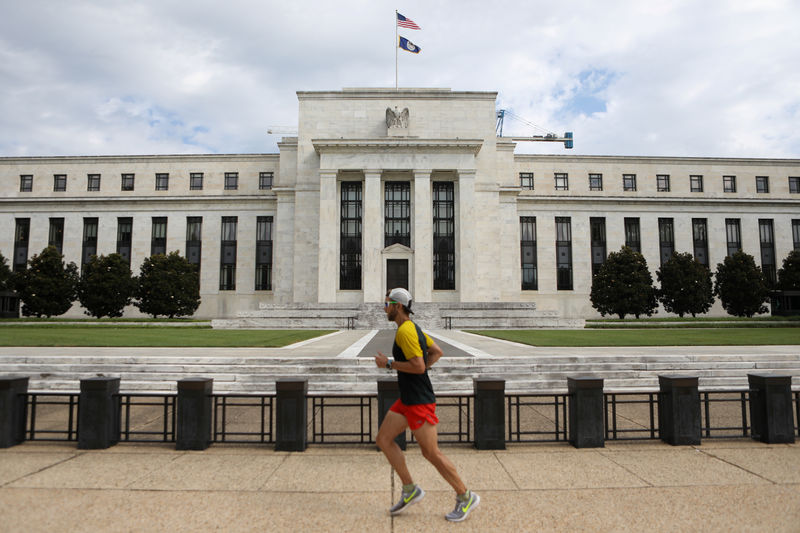(Bloomberg) -- Results from the Federal Reserve’s special coronavirus stress tests, due after the bell, may highlight the primacy of political tensions over the financial health of the nation’s biggest banks.
Though lenders are expected to pass the tests, the Fed is likely to keep a pandemic-induced halt on buybacks and caps on dividends after it extended the unprecedented constraint in October through year-end, according to analysts.
Banks have been under fire as critics argued that allowing capital distributions creates risk during a challenging economic period. However, bank executives including JPMorgan Chase & Co.’s Jamie Dimon have said they have extraordinary amounts of capital and would like to buy back stock.
U.S. banks will probably prove their resiliency, even under the exam’s harsher assumptions, Wells Fargo (NYSE:WFC) analyst Mike Mayo said. However, he believes the Fed won’t allow more capital to be returned to shareholders until perhaps the third quarter of 2021. Like other analysts, he says the problem may be with perception by both politicians and the public.
“Regulators might not want to risk reputations by having banks repurchase stock or increase dividends at a time of rising Covid cases, greater pandemic burden on consumers and businesses, and lingering economic uncertainty,” he wrote in a note to clients.
Mayo added that if he’s wrong about political concerns overriding new buybacks and bigger dividends, then “stocks trading close or below book value would be among the greatest beneficiaries,” like Citigroup Inc (NYSE:C). and Bank of America Corp (NYSE:BAC).
Over at UBS, analyst Saul Martinez expects the status quo will be extended, with the Fed keeping existing limitations through at least the first quarter.
“Even if banks perform well and keep capital levels above the minimum threshold in the stress scenarios,” he said that the Fed could justify keeping restrictions by citing rising Covid-19 cases and signs of economic weakness, even with vaccine distribution and effective treatments.
Plus he warned that “criticism from select policymakers could emerge if restrictions are lifted as the Biden administration prepares to take office.”
On the other hand, John Augustine, Huntington Private Bank’s chief investment officer, sees the potential for buybacks as soon as April, particularly as banks may be over-reserved for loan losses. In a phone interview, Augustine said that the “banks are arguably over-capitalized.” He added that a rebound in bank stocks this quarter was likely driven in part by expectations for dividends and share repurchases next year, as the pandemic ebbs with widespread vaccination.
“The Fed may well wait another quarter until Spring 2021 to allow the Covid-19 pandemic to subside,” with the post-vaccine economic landscape helping the outlook, Janney Montgomery Scott’s director of research Christopher Marinac wrote. He suggested that investors should focus any immediate disappointment into thinking about banks growing their capital and tangible book value as they retain more earnings for the next few months.
RBC analyst Gerard Cassidy noted that next year’s stress tests are “around the corner,” with the Fed publishing economic scenarios for what’s known as the 2021 CCAR exam in January. Cassidy expects those economic scenarios will be “more severe” than this year’s had been, which will “likely result in some banks having greater capital depletion.”
Banks stocks slipped for a second day on Friday morning, with the KBW Bank Index shedding 1.1%. The index, hammered by Covid-driven economic woes and low interest rates, has underperformed the broader market this year, with a drop of 17%, versus a 15% rally for the S&P 500. JPMorgan Chase & Co. (NYSE:JPM) has fallen 15% year to date, while BofA is down 18% and Citigroup has tumbled 26%.
©2020 Bloomberg L.P.
